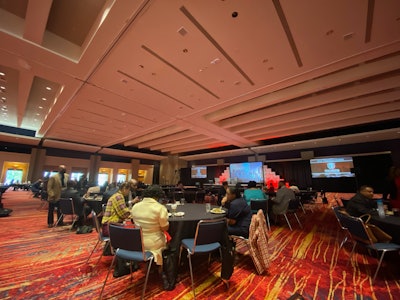
“I was a little bit lost, not knowing what to do for myself. If it wasn’t for an HBCU, I wouldn’t have the life I have now,” said Bradley. “HBCUs are the protectors of this thing called Black education, where we own our destiny, [and] make the impossible possible.”
Bradley is one of hundreds who gathered in Charlotte, NC this week for the Higher Education Leadership Foundation’s (HELF’s) "Ideation, Innovation & Collaboration: The Future of HBCUs," conference. HELF is an organization of HBCU policy and thought leaders working to showcase the necessary value of HBCUs. The organization asked representatives of the 101 HBCUs to come together in collaboration to share stories, resources, information and ideas. Attendees and panelists addressed the difficulties HBCUs face, including a lack of funding, and brainstormed ways in which they can better tell the stories of their—and their student’s—successes.
“Students come to college with a desire, to fulfill a dream,” said Dr. Yolanda Watson Spiva, president of Complete College America, a national advocacy group working to equitize and improve higher education. “To be the wildest dreams of their ancestors, to provide for their families in a way that allows them access to the American dream.”
 Dr. Yolanda Watson Spiva, president of Complete College America.
Dr. Yolanda Watson Spiva, president of Complete College America.
“It is important for students to be one another’s keeper, making sure they have that level of connection,” said Spiva.
Advisors also play a crucial role to play by reaching out in a proactive and intrusive manner, getting “all up in their business,” said Spiva. By doing so, Spiva said college leaders can spot a problem before it becomes a barrier.















